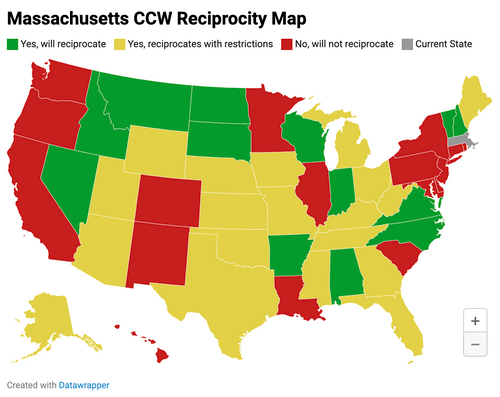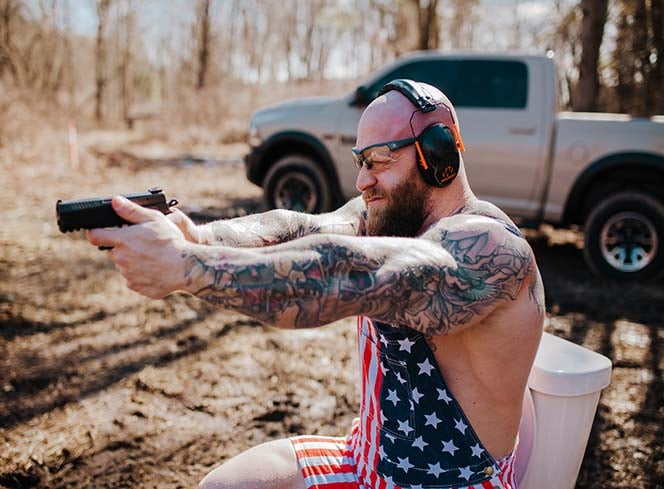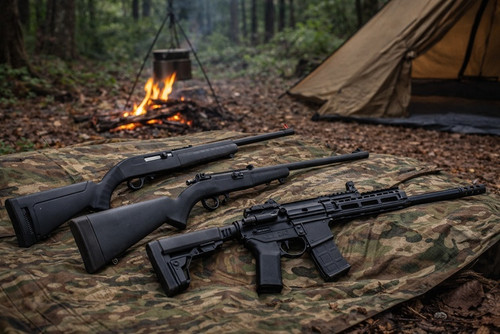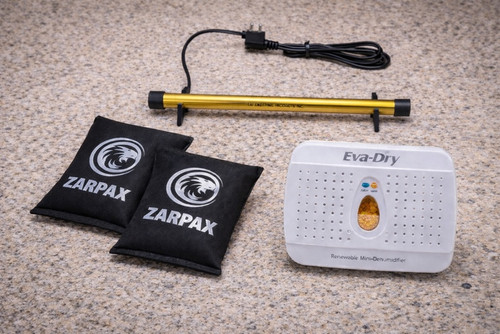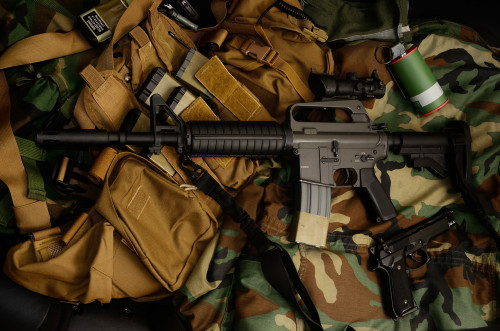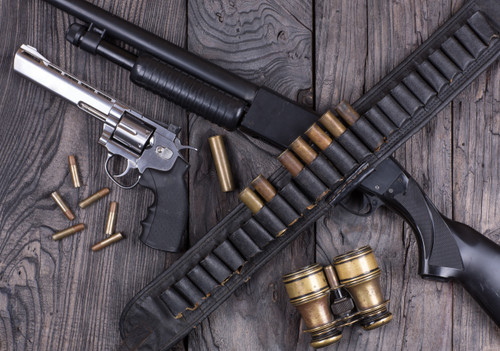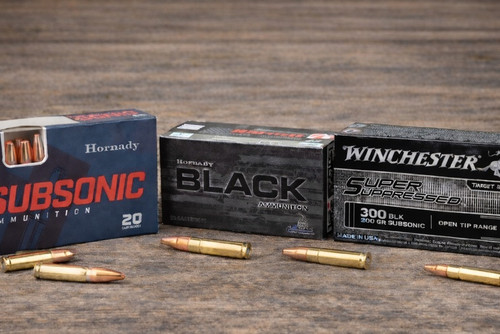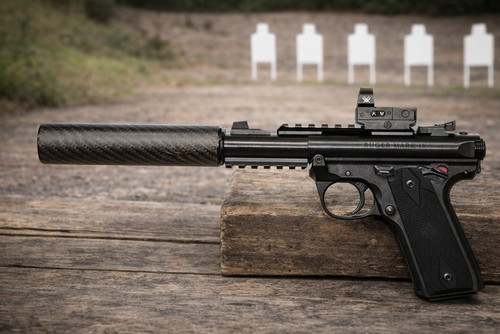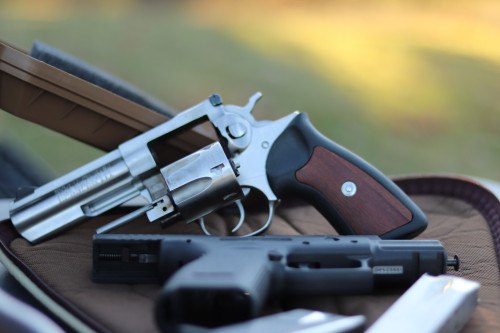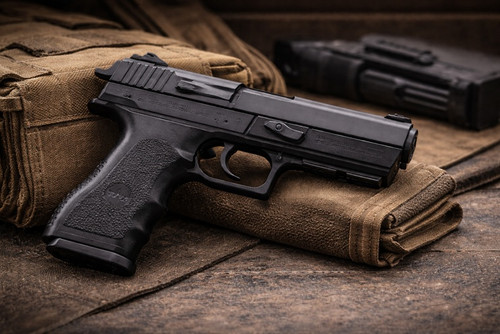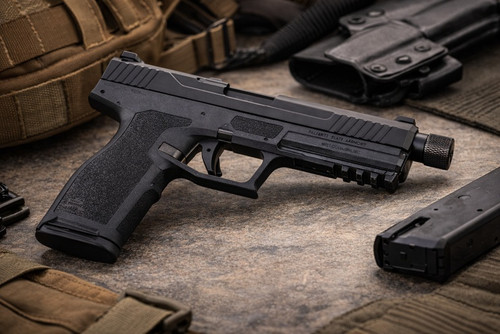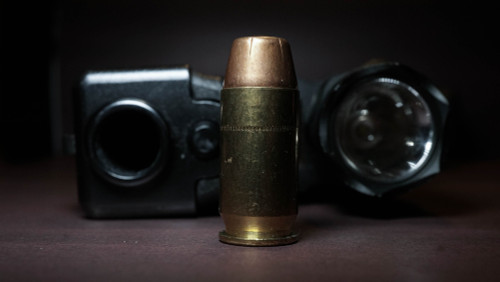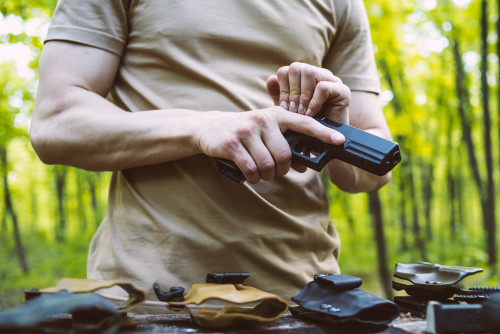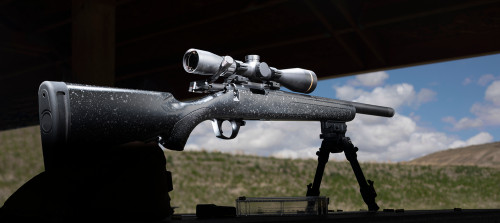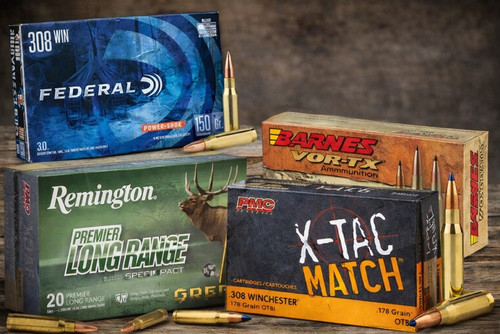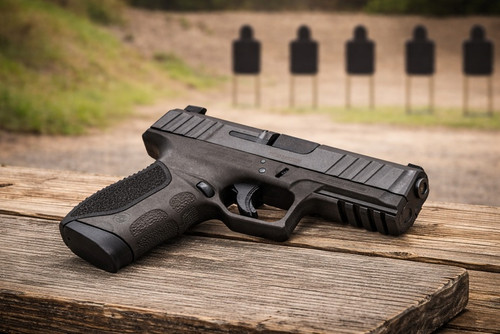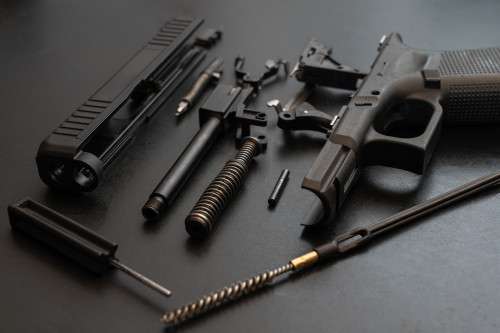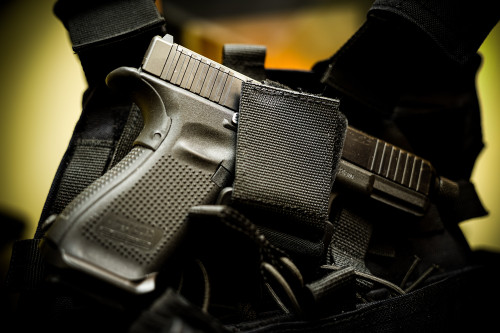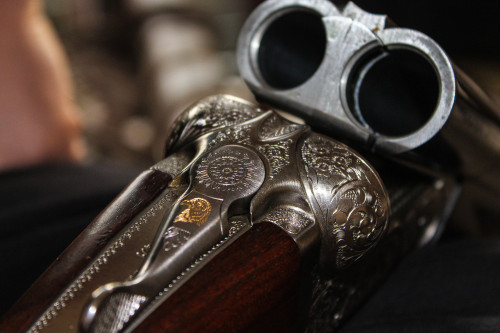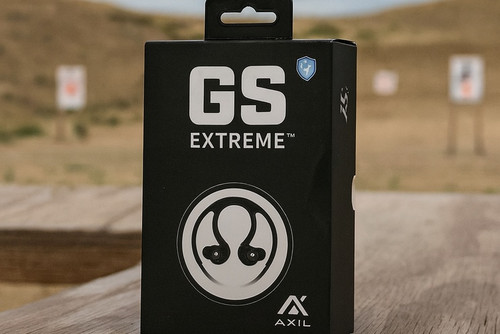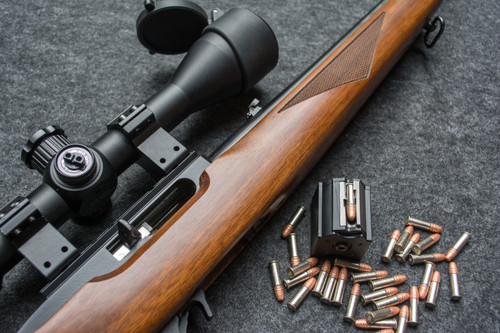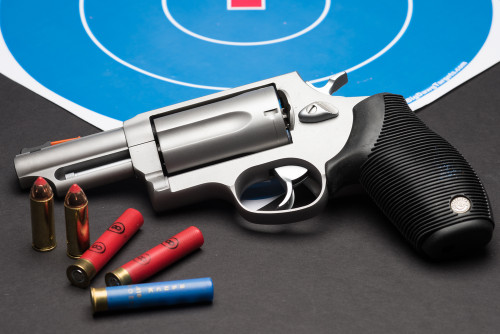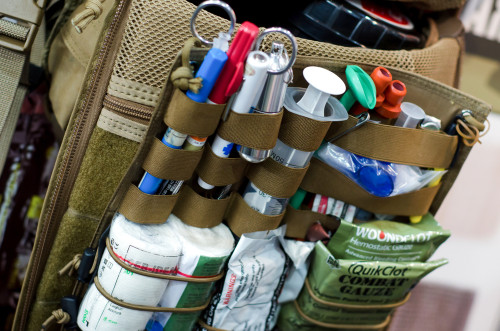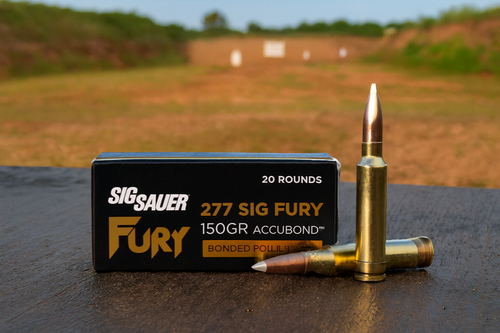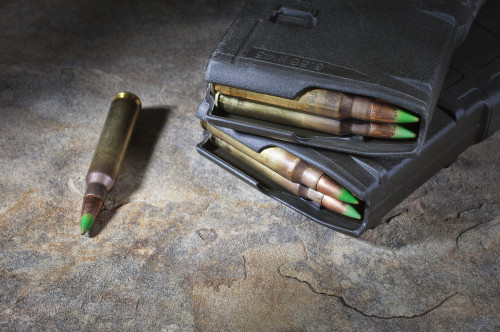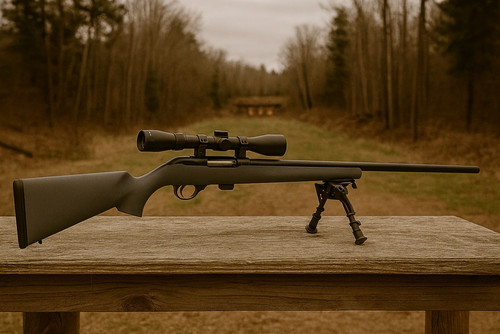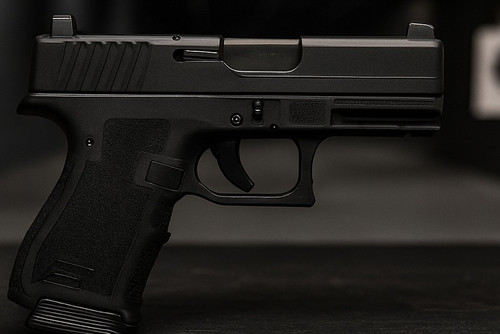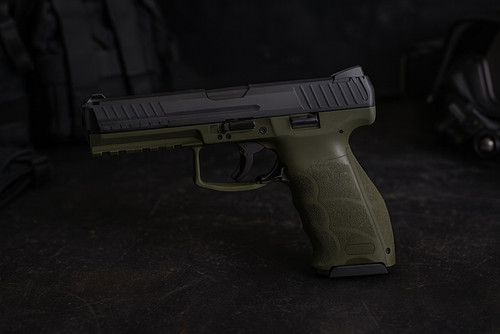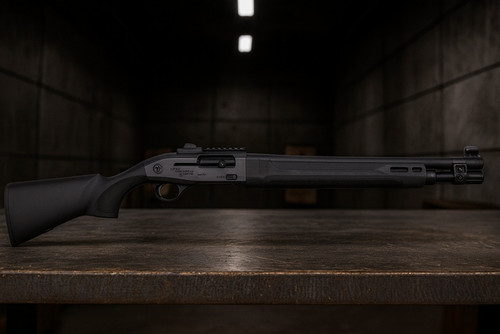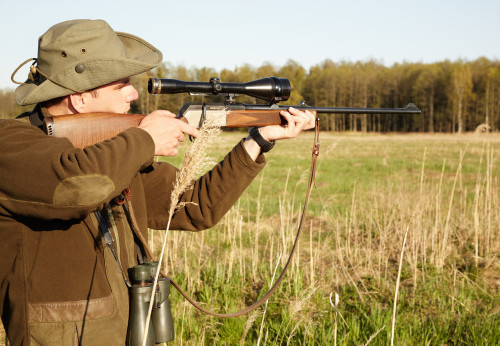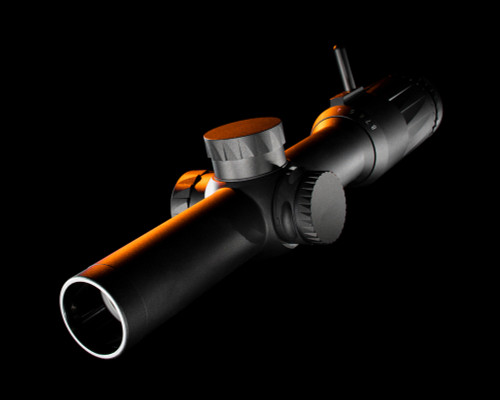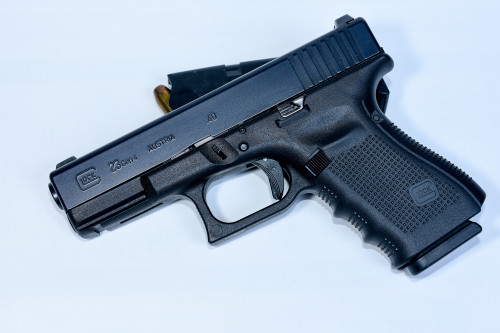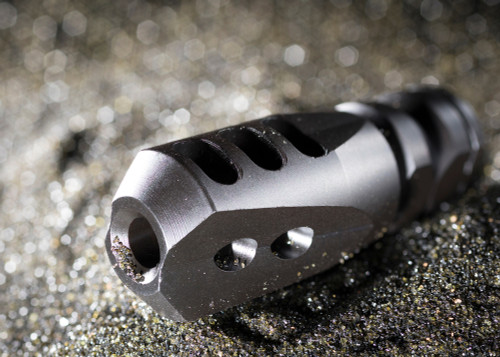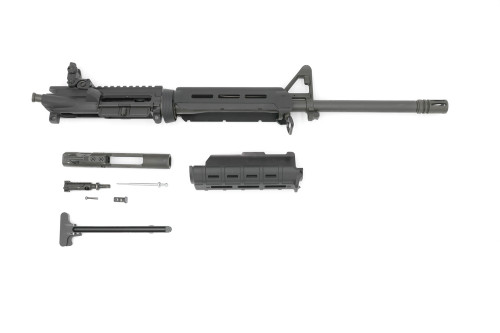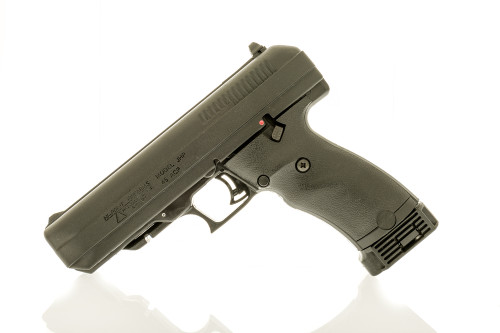Like other states with large metro areas, Massachusetts strictly enforces concealed carry of firearms. However, if you’re willing to spend some time and do some paperwork, you can legally carry a concealed handgun and stay on the right side of the law.
In this guide, we’ll cover everything you need to know about concealed carry in Massachusetts including reciprocity with other states, how to get a license, and specific rules regarding the purchase, carry, and use of a firearm in the “Bay State.”
Legal Disclaimer
This article doesn’t constitute legal advice. We’re communicating informally here to make this information easy to grasp without getting lost in legal mumbo jumbo. With that said, it’s the legal mumbo jumbo that will determine (in court) whether you end up in trouble.
We’ll be as accurate as we can, but for clarification, cross-check the information here with actual laws, which we’ve linked throughout the article. If you have additional questions or concerns, we recommend consulting with a local attorney experienced in self-defense law.
1. Quick Stats
- Number of other state permits honored in Massachusetts: 0
- Number of states that honor Massachusetts permits: 27
- Percentage of people licensed for concealed carry in Massachusetts: 6.8%
- Number of issued licenses in Massachusetts: 470,000
- Minimum age to carry a concealed firearm in Massachusetts: 21
- Massachusetts concealed carry license validity: 6 years
2. Massachusetts Concealed Carry Overview
This section provides an overview of concealed carry laws and other relevant weapons laws in Massachusetts.
Carry Type
Massachusetts is not a constitutional carry or permitless carry state. To legally carry a loaded firearm, you must qualify for and obtain a License to Carry (LTC).
Open carryis not allowed, even with an LTC. As a general rule, we don’t recommend open carry, anyway. There is no upside to walking around with a visible weapon other than stroking your ego or intimidating people. Don’t be a clown.
Issue Type
A 2023 Supreme Court decision forced Massachusetts to become a shall-issue state, which means if you meet the requirements, authorities must issue you an LTC. You do not need to justify why you have a special need for an LTC. If you qualify, you are good to go.
LTC Details
The Massachusetts LTC gives the holder the right to carry a loaded, concealed firearm. The LTC also authorizes the holder to purchase firearms. The license is issued to both residents and non-residents.
For Massachusetts residents, LTCs are issued by your local police department. For non-residents, LTCs are issued by the State Police Firearms Records Bureau. More on the LTC application process in section seven of this article.
To qualify for an LTC, the applicant must be 21 years old, be a legal resident of the US, complete a state-approved firearms training course, and meet certain criminal history and mental health requirements.
There is no public registry of LTC holders, though there is a private registry accessible by law enforcement. Also, the LTC is linked to your driver’s license, so law enforcement will be aware of your status as soon as they check you in their system.
Previously, Massachusetts issued two types of LTC, class A and class B. Class A authorized concealed carry and class B authorized open carry. Currently, the state only issues one LTC for concealed carry. Class A and class B licenses remain valid until the expiration date, then the holder needs to switch to a new LTC.
Local Preemption
There are no state firearm preemption laws in Massachusetts, which means the state does not forbid local governments from creating additional firearms regulations for their jurisdictions. Know your local laws before you start carrying.
MA General Laws, Chapter 43B, Section 13
Red Flag Law
Massachusetts has a red flag law, which gives authorities a very specific framework to legally disarm dangerous people before tragedy strikes. A law enforcement officer or immediate family member can petition the legal system to request firearms be taken away from people who might be an immediate danger to themselves or others.
For example, if some lunatic tells his mom he plans to go on a shooting spree at the supermarket, the mom can report this intent to law enforcement, who can then acquire a warrant to disarm the lunatic.
MA General Laws, Chapter 140, Section 131R
Other Weapons
The LTC also allows for the carry of stunguns and tasers, though these devices must be in the shape of a gun. The device cannot have a covert design that resembles other objects such as a pen or a phone.
MA Session Laws, Acts (2018), Chapter 123
Buying and possessing chemical mace and pepper spray does not require an LTC, though these tools can only be sold by a Federal Firearm Licensee (FFL).
MA General Laws, Chapter 140, Section 122C
Magazine Limits
Massachusetts prohibits large capacity magazines that hold more than 10 rounds, though there are some specific cases where if you owned the magazine before the law was enacted (1994), you are exempt.
But regardless of loopholes or legal gymnastics, it’s probably best to just carry a 10-round mag. Don’t make this harder than it has to be, and don’t give some police officer a reason to mess with you. Plus, nothing stops you from carrying extra magazines.
MA General Laws, Chapter 140, Section 131M
3. Massachusetts Concealed Carry Reciprocity
Massachusetts does not honor concealed carry permits from any other state. If you want to carry in Massachusetts, you must obtain an LTC.
Full Reciprocity
These states fully honor the LTC:
- Alabama
- Arkansas
- Idaho
- Indiana
- Montana
- Nevada
- New Hampshire
- North Carolina
- North Dakota
- South Dakota
- Vermont
- Virginia
Partial Reciprocity
These states honor the LTC, but with some restrictions that vary by state:
- Alaska
- Arizona
- Florida
- Georgia
- Iowa
- Kansas
- Kentucky
- Maine
- Michigan
- Mississippi
- Missouri
- Nebraska
- Ohio
- Oklahoma
- Tennessee
- Texas
- Utah
- West Virginia
- Wisconsin
- Wyoming
No Reciprocity
These states do not honor the LTC:
- California
- Colorado
- Connecticut
- Delaware
- District of Columbia
- Hawaii
- Illinois
- Louisiana
- Maryland
- Minnesota
- New Jersey
- New Mexico
- New York
- Oregon
- Pennsylvania
- Rhode Island
- South Carolina
- Washington
4. Massachusetts Rules for Buying a Gun
These are the key rules for buying a gun in Massachusetts.
Purchase Permit
To legally purchase or acquire a handgun, you need an LTC or a Firearm Identification Card (FID), which gives you the right to purchase and transport a gun, but not carry loaded in a state of readiness.
Background Checks
All handgun purchases and transfers require a background check. This is a real-time process where the seller uses the state’s online gun transaction portal to check the validity of your FID or LTC. This process is also required for private gun sales and transfers.
Possessing an LTC does not exempt you from a background check.
MA General Laws, Chapter 140, Section 128A
Waiting Period
There is technically no waiting period for handgun purchases, but it’s kind of a moot point because you need to apply for and obtain an FID or LTC before you can buy any guns anyway, which can take up to 60 days to complete. So, while there is technically no waiting period, you’ll be doing plenty of waiting before you can legally buy a gun.
Registration
All gun purchases must be registered through the Massachusetts Gun Transaction Portal. This includes private sales, transfers, and even guns that are inherited. If you get a gun by any means whatsoever, be sure it is registered on the portal within seven days.
Of course, if you buy a gun from an FFL, this process will be completed for you. You only need to worry about it if you are somehow acquiring a gun through other means.
As a result, the state’s Department of Criminal Justice Information Services maintains a comprehensive record of all sales and transfers, so they have a detailed database of all legally owned handguns in the state.
Minimum Age for Purchase
You must be at least 21 years old to purchase a handgun in Massachusetts.
MA General Laws, Chapter 140, Section 130
Approved Firearms
Just to make things more interesting, Massachusetts maintains an approved firearms roster that lists the specific guns you’re legally allowed to purchase and carry in the state.
MA General Laws, Chapter 140, Section 123
5. Massachusetts Rules for Carrying a Gun
This is an overview of rules and laws related to carrying and possessing a firearm in Massachusetts:
Basic Guidelines
As mentioned above, concealed carry is the only way to legally carry a gun in public in Massachusetts. Concealed carry requires an LTC, which you must have at all times when carrying your gun. Open carry is effectively prohibited.
In this context, to “carry” a gun means having the gun on your person or readily accessible in something like a briefcase or backpack. This also includes having the gun readily accessible in your vehicle.
Prohibited Locations
While the LTC broadly gives you the right to carry a concealed handgun, there are a variety of situations where concealed carry is still prohibited. Remember, Massachusetts does not have state-wide preemption regarding firearms, so any local authority or private property can legally enact firearm prohibitions. Be sure to stay up to date on laws in your area.
Places you CANNOT carry a concealed handgun:
- Schools and universities
- Courthouses
- Airports
- Off-highway vehicles (OHV) (e.g., four-wheelers, snowmobiles)
- Any private property that prohibits firearms
Places you CAN carry a concealed handgun:
- State and national parks
- Roadside rest areas
- Places that serve alcohol
- Your property or business
- Anywhere else
Duty to Inform Police
In Massachusetts, you do not have a duty to inform police you are carrying a concealed weapon or have a weapon in your car. However, as the concealed carry registry is linked to your license, they will know soon enough. If they ask for your LTC, you must present it.
As a general note on police interactions, we recommend being truthful and cooperative. They have a tough job with high stakes, so be friendly and cooperate within reason, and the entire interaction will likely be smooth. If you have a problem with police behavior, a traffic stop is NOT the right time to make an issue out of it. You will lose.
MA General Laws, Chapter 140, Section 129C
Carrying While Intoxicated
Massachusetts law prohibits carrying a loaded gun while intoxicated by alcohol or drugs. As a basic rule, if you’re too intoxicated to (legally) drive, you’re too intoxicated to carry a gun.
Beyond the legalities, you have a moral and ethical responsibility to maintain your cognitive faculties when carrying a gun. The purpose of that gun is to keep you and the people around you safe, which you can’t do if you’re wasted. If you want to get wasted in public, leave your gun at home and outsource your safety and security to more serious people.
MA General Laws, Chapter 269, Section 10H
Carrying in Vehicle
To have a loaded gun in your car, you need to have an LTC and the gun needs to be under your direct control, meaning it needs to be on your body or very close (i.e., so you can grab it).
If you only have an FID or if the gun is not under your direct control, the gun needs to be unloaded and trigger locked. Ammo must also be stored in a separate container in this circumstance.
Trigger locks are not adequate for transporting large capacity rifles or shotguns. These guns must be unloaded, locked in a case, trunk, or other secure container.
Federal law allows for interstate firearm transportation, as long as you can legally possess the gun at both the source and destination of your travel. Massachusetts law supports this, allowing transit travel as long as guns are unloaded and locked.
MA General Laws, Chapter 140, Section 131C
Minimum Age for Possession
Possession and transport of firearms requires an FID or LTC, so you must be 21 years old. In some very specific cases such as hunting or competition shooting, younger people can have guns if they are under the supervision of an adult with an FID or LTC.
6. Massachusetts Rules for Using a Gun
This is an overview of rules and laws related to using a firearm in Massachusetts:
Use of Deadly Force
Deadly force is a physical force that can reasonably be expected to cause death. If you slap someone and they die, this isn’t deadly force because it's unreasonable to assume they would die (you’re probably still going to jail, though). Conversely, if you shoot someone and they survive, this is still deadly force because death was the expected outcome.
In Massachusetts (and pretty much everywhere else), deadly force is reserved for situations where you are threatened with great bodily harm or death — and you can only use the minimum amount of force necessary to stop the threat. You can also use deadly force to protect others faced with a similar threat.
The use of a gun should always be considered deadly force, even if nobody dies. Use this to shape your decision-making. The gun is not a toy or a device to threaten people. If you pull the gun out in public, you must be in a deadly force situation.
How do you know? The law uses the reasonable person test, which asks whether a theoretically reasonable person in the same situation would behave as you did. Remember, you’ll have to explain your actions to the police and possibly to a jury. They have to be able to say, “Yeah, if I was in that situation, I would have done the same thing.”
Even if you’re forced to make a split-second decision, you’ll be held accountable for that choice. The keys to legal and effective self-defense are skill development, scenario planning, and comprehensive knowledge of the law — and avoiding bad situations entirely.
Duty to Retreat
You do not have the right to stand your ground in Massachusetts. If faced with a threat, you have a duty to retreat. You can only legally use deadly force if there is literally no other option available or if retreating exposes you (or others) to more danger.
While retreating may be unpalatable to the more red-blooded among us, it’s the law. If you stand your ground with deadly force and a jury thinks you reasonably could have retreated, you’ll end up in serious trouble.
Castle Doctrine
In Massachusetts, the one place where you do not have a duty to retreat is in your home, a legal concept commonly known as Castle Doctrine. If an intruder persists, you have every right to stop them. The concept is that when you’re at home, there is nowhere else to retreat. Your back is already “against the wall” and you now have the legal right to defend yourself — with deadly force if necessary.
But, the reasonable person test still applies if deadly force is used. If you shoot an armed intruder in your living room, you are probably in the clear. If you shoot an unarmed intruder in the back on your porch, you might have some explaining to do.
This does not apply if the “intruder” has a legal right to be on the property. In other words, you can’t tell your roommate or significant other to go somewhere else, then start blasting away when they try to come back. Castle Doctrine won’t protect you here.
MA General Laws, Chapter 278, Section 8A
Excessive Force
You can only use the amount of force necessary to stop the threat. This is where you could do everything right, but then pull that trigger one too many times and cross the line into criminal territory.
Training is the only antidote we have against the mind-bending stress and insanity of gun combat. The better trained you are, the more likely you will be to stop yourself when the threat is neutralized.
Defense of Property
You can only use deadly force in defense of a person. You can’t shoot someone who is stealing or breaking things, no matter how justified you might feel in doing so.
Liability
Massachusetts law provides specific protection for self-defenders from civil suits, but only in defense of a dwelling (Castle Doctrine). If you do everything right and act legally, the family of the intruding scumbag cannot turn around and sue you because you fought back.
MA General Laws, Chapter 231, Section 85U
Brandishing
Massachusetts law does not specifically mention brandishing, though it’s pretty clear that if you cause a public disturbance with a gun, you’ll end up in hot water.
Remember, the police have broad powers to enforce the law. If it seems like you’re doing something wrong, they will find a legal explanation to stop you — as they probably should. The general point here is, don’t be a clown in public, especially with your gun.
MA General Laws, Chapter 265, Section 15B
Use While Intoxicated
As mentioned above, you can’t carry while intoxicated, so you definitely can’t use a gun while intoxicated, either.
A Note on Using Your Gun
It’s worth pointing out that the use of deadly force is really the crux of the entire issue of concealed carry. Everything else we talk about here could result in fines, misdemeanors, or maybe felonies in rare cases.
But the use of deadly force is an entirely different level of seriousness. What you do in a split second could be the difference between going home to see your family and spending the rest of your life in prison. Everything else is small potatoes.
In an instant, you must:
- Recognize that you are facing a deadly threat
- Recognize that you cannot retreat
- Successfully win a fight for your life
- Apply the exact amount of force required to stop the threat
Then, you might have to convince a jury that any reasonable person would have done the same thing in that situation. It might seem cool to carry a gun, but never forget, this is serious business with the highest possible stakes. Prepare accordingly.
7. How To Get a Massachusetts LTC
The following is a step-by-step guide for obtaining an LTC in Massachusetts. Always check the official website for the latest requirements.
Step 1: Determine Eligibility
Before you begin the process, determine if you’re eligible for an LTC. To be eligible, you must:
- Be a legal resident of the US
- Be at least 21 years old
- Have a residence or business in the jurisdiction you are applying
- This does NOT apply to non-resident applicants, of course
- Have successfully completed a state-approved handgun safety course
- Not be convicted of any felony or domestic violence
- Not be subject to a restraining order
- Not been dishonorably discharged from the armed forces
- Not been deemed mentally insane by a court of law
- Not have outstanding warrants or be a fugitive
Additional details and forms can be found on the official website.
Step 2: Complete a Handgun Safety Course
Next, you must pass a handgun safety course approved by the Massachusetts State Police. The course should cover fundamental aspects of handgun safety and should include a practical live-fire session with a semi-automatic pistol or a revolver. Make sure to get a certificate of completion, which you’ll need for your application.
The specific requirements of the course vary depending on the town you’re applying in. For example, some towns require live-fire, others do not. Generally, completing the live-fire improves the likelihood the license will be granted, so do it if you can.
You may not need a training certificate if you are a current or former member of the armed forces or a law enforcement officer. Basically, if you already carried a gun for work, you probably don’t need a one-day safety course. Contact your police department to be sure.
Note that this course is a minimum requirement, similar to a driving test. While the driving test proves someone is minimally competent to operate a car, it does not mean they are proficient. As we’ve said many times, carrying a gun is a serious responsibility that affects your life and those around you. A minimum safety course is not nearly enough to bring you to the proficiency you need to effectively carry a concealed weapon. You must commit to the training process and become as proficient as possible with the time and resources you have.
Step 3: Apply for the LTC
For Massachusetts residents, you must apply through your local town or city, which means requirements may vary. Contact your local police department for their specific LTC requirements.
You will likely need the following:
- Complete application
- Firearms safety course certificate
- Fingerprint cards
- Identification
- Proof of residence
- Application fee
Every town or city uses the same state-issued form, which can be found here. The cost to apply is $100, processing time can take up to 40 days, and the license is valid for six years.
The process for non-residents is similar, except that you need to go in-person to the State Firearms Records Bureau. Non-resident permits are only valid for a year, so must be renewed annually, which can be done by mail. After six years, you need to again go in-person to the State Firearm Records Bureau for an update. The non-resident LTC application can be found here and can take up to 90 days to process.
4. Pick Up Your LTC
When your LTC is ready, you will be notified by phone or mail. You’ll need to go down to the police station (for residents) or the State Firearms Records Bureau (for non-residents) to pick up your LTC in person.
8. Massachusetts LTC Management
Here’s how to manage your LTC once you’re already approved.
Renewal
You are responsible for renewing your concealed carry license, which you will do through your local police station. You must submit your renewal application before your current LTC expires, which allows your LTC to remain valid while your renewal is processed.
Residents use this renewal form, non-residents use this renewal form. If you fail to submit for renewal before the expiration, your LTC will expire and you will have to go through the entire process again.
The process will be completed within 60 days for residents and 90 days for nonresidents. You will need to pick up your renewed license in person.
Address Change
If you change your address, you need to update your LTC. Complete the change of address form and mail it to the following authorities:
- The police department that issued your license
- The police department in your new city or town
- State Firearms Records Bureau
You must report your change of address within 30 days. Failure to do so could result in your license being revoked.
Name Change
If you change your name, you also need to update your LTC. Complete the Name Change Request form and email it to the Firearms Records Bureau (FRB@mass.gov). Include an image of the front side of your LTC.
You can also complete this process by phone by calling (617) 660-4722.
Lost or Stolen Permit
If your LTC is lost, stolen, or destroyed, contact the police department that issued your LTC and they will advise you on how to proceed. It’s important that you file a report as soon as possible.
9. Massachusetts Weapons Laws FAQ
Here are some common questions regarding Massachusetts weapons laws and concealed carry:
Does an LTC exempt you from a background check?
No. Anyone buying a handgun in Massachusetts must undergo a background check.
Is there a waiting period for handgun sales?
Technically no. However, as the process for obtaining a license and purchasing a handgun can take weeks or months, a waiting period is built in by default.
Can I keep a loaded handgun in my car?
Yes, you can possess a loaded handgun in your car as long as you have active control over the weapon. If you leave it in the car, it needs to be unloaded, trigger locked, and secured in a case. The ammo must also be stored separately.
What’s the minimum age to possess a handgun?
21 years old.
Can I legally carry a knife?
Yes, though the blade must be no longer than 1 ½ inches. It also can’t be double-edged, and if it’s a locking knife, it can’t be carried in the locked position. No ballistic knives, automatic knives, or knives with knuckles.
MA General Laws, Chapter 269, Section 10
Can I carry a concealed handgun while hunting?
No, handguns are prohibited to carry while hunting, including hunting with a rifle, bow, shotgun, and primitive firearms. Strange as it is, you are only allowed to carry the weapon necessary for the specific kind of hunting you’re doing.
MA Department of Fish & Wildlife Regulations
Do I need a permit to buy a handgun?
Yes, you need an FID or an LTC to legally purchase a handgun.
Do I need to register my gun?
Yes. All gun sales are processed through the state handgun portal, so all handguns are functionally registered via this process. No matter how the gun is transferred, it eventually needs to be recorded into the state registry with the Firearms Bureau.
Pro Armory: Your Concealed Carry Equipment Supplier
As with most of the “big city” states, concealed carry laws in Massachusetts are strict. But, like it or not, it’s our duty as citizens to follow those laws. It’s important to remember that your goal as a concealed carrier is not to push the limits of legality or find some loophole that allows you to walk around with a submachine gun or leg-strapped six-shooter. Your goal is to become as prepared as possible and to avoid trouble — both with the law and with your fellow citizens — so that when that once-in-a-lifetime event occurs, you are ready to protect yourself and others. Society needs serious concealed carriers, not clowns living out some childhood fantasy.
At Pro Armory, we believe concealed carry is your right — but only if you do so as a thoughtful, responsible citizen. Stay prepared with the best tools to help you exercise your right to bear arms and defend yourself. We offer ammo for handguns, rifles, and shotguns — plus a variety of tactical accessories to load out your firearm for any situation.
Want to become a better shooter? Pro Armory also offers online firearms training to enhance your proficiency with your concealed carry weapon. Learn shooting tips, tactical maneuvers, and concealed carry best practices from veterans and other shooting experts — all from your own home. Sign up for our newsletter to be notified when training officially launches.



